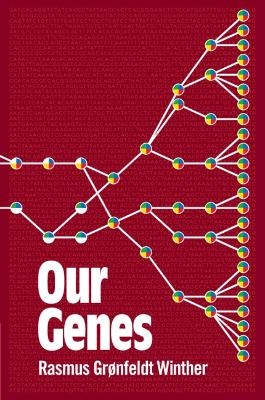
Our Genes
A Philosophical Perspective on Human Evolutionary Genomics
Seiten
2022
Cambridge University Press (Verlag)
978-1-316-62150-9 (ISBN)
Cambridge University Press (Verlag)
978-1-316-62150-9 (ISBN)
Combines natural science and philosophy to attract academic and general readers interested in philosophical questions about who we are and how we are connected. By investigating current trends in genomic research, Our Genes illustrates the potential and the limitations of genes to inform our sense of identity.
Situated at the intersection of natural science and philosophy, Our Genes explores historical practices, investigates current trends, and imagines future work in genetic research to answer persistent, political questions about human diversity. Readers are guided through fascinating thought experiments, complex measures and metrics, fundamental evolutionary patterns, and in-depth treatment of exciting case studies. The work culminates in a philosophical rationale, based on scientific evidence, for a moderate position about the explanatory power of genes that is often left unarticulated. Simply put, human evolutionary genomics - our genes - can tell us much about who we are as individuals and as collectives. However, while they convey scientific certainty in the popular imagination, genes cannot answer some of our most important questions. Alternating between an up-close and a zoomed-out focus on genes and genomes, individuals and collectives, species and populations, Our Genes argues that the answers we seek point to rich, necessary work ahead.
Situated at the intersection of natural science and philosophy, Our Genes explores historical practices, investigates current trends, and imagines future work in genetic research to answer persistent, political questions about human diversity. Readers are guided through fascinating thought experiments, complex measures and metrics, fundamental evolutionary patterns, and in-depth treatment of exciting case studies. The work culminates in a philosophical rationale, based on scientific evidence, for a moderate position about the explanatory power of genes that is often left unarticulated. Simply put, human evolutionary genomics - our genes - can tell us much about who we are as individuals and as collectives. However, while they convey scientific certainty in the popular imagination, genes cannot answer some of our most important questions. Alternating between an up-close and a zoomed-out focus on genes and genomes, individuals and collectives, species and populations, Our Genes argues that the answers we seek point to rich, necessary work ahead.
Rasmus Grønfeldt Winther is a philosopher of science, researcher, writer, educator, diver, and explorer. He is Professor of Humanities at University of California, Santa Cruz and Affiliate Professor of Transformative Science at the GLOBE Institute at University of Copenhagen.
Preface; 1. Introduction; 2. Origins and Histories; 3. The Mind, the Lab, and the Field: Three Kinds of Populations; 4. Metrics and Measures; 5. Models and Methodologies; 6. Six Patterns of Human Genomic Variation; 7. Natural Selection; 8. Intelligence, Female Orgasm, and Future Discovery; 9. Is Race Real?; 10. The Conscious Universe: Genes in Complex Systems; Bibliography; Index.
| Erscheinungsdatum | 01.11.2022 |
|---|---|
| Verlagsort | Cambridge |
| Sprache | englisch |
| Maße | 151 x 228 mm |
| Gewicht | 700 g |
| Themenwelt | Sachbuch/Ratgeber ► Natur / Technik |
| Naturwissenschaften ► Biologie ► Genetik / Molekularbiologie | |
| Naturwissenschaften ► Biologie ► Humanbiologie | |
| ISBN-10 | 1-316-62150-2 / 1316621502 |
| ISBN-13 | 978-1-316-62150-9 / 9781316621509 |
| Zustand | Neuware |
| Informationen gemäß Produktsicherheitsverordnung (GPSR) | |
| Haben Sie eine Frage zum Produkt? |
Mehr entdecken
aus dem Bereich
aus dem Bereich
50 Meilensteine der Genetik
Buch | Hardcover (2022)
Librero b.v. (Verlag)
9,95 €


